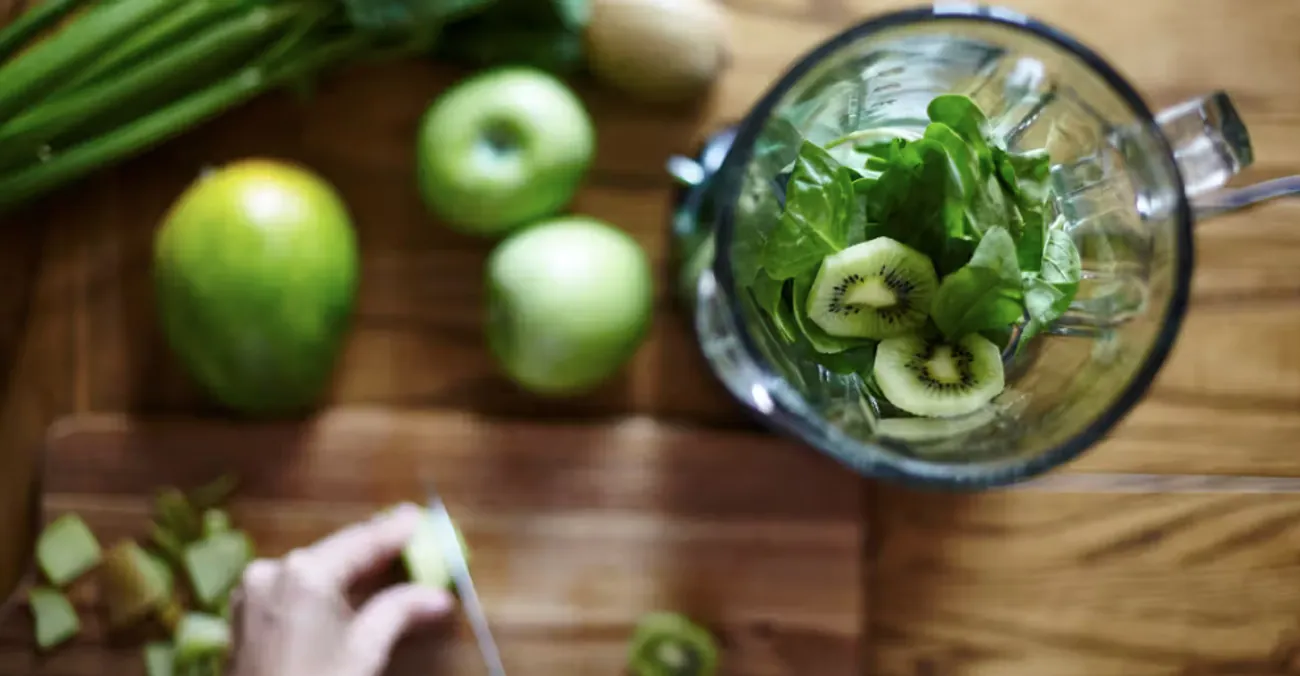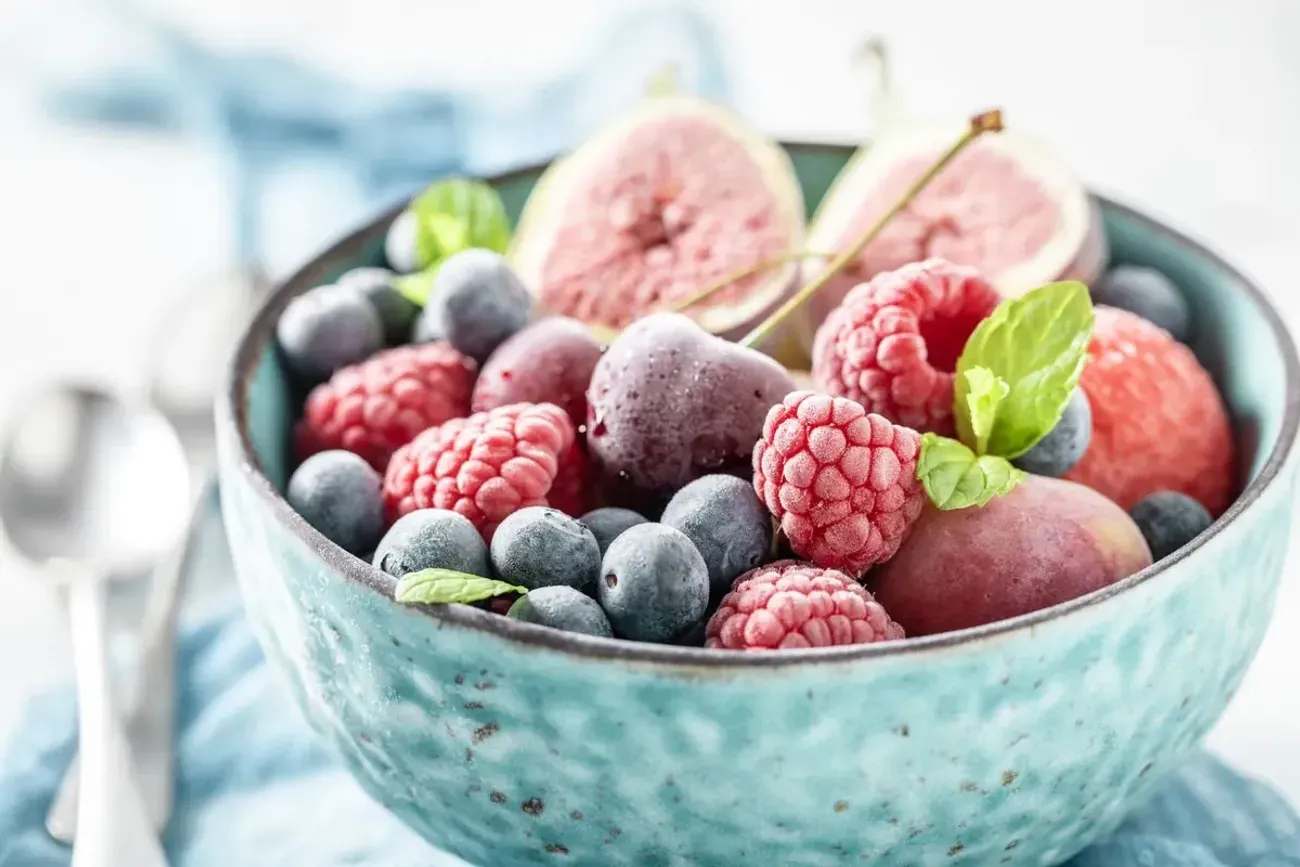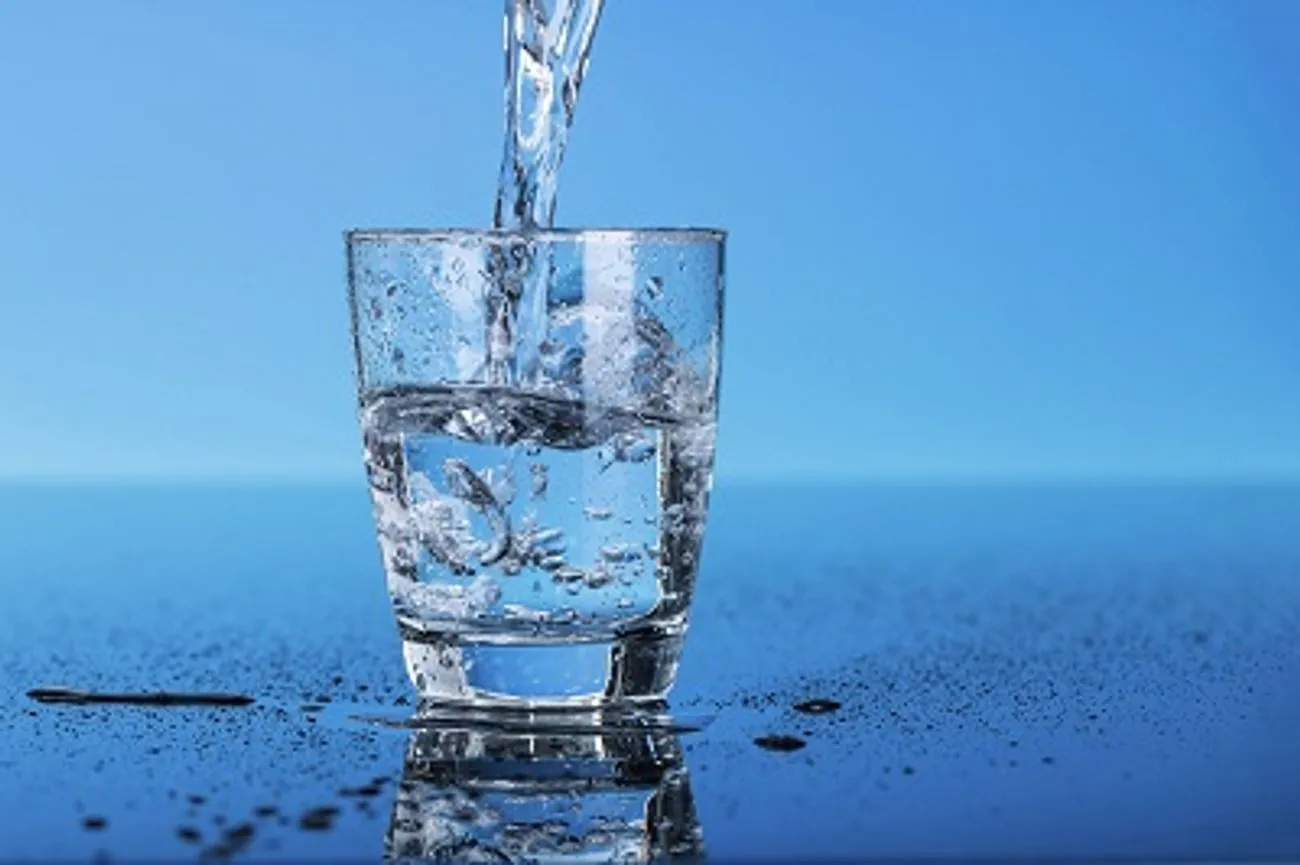Detox diets: Nutritionist explained whether cleansing the body with juices and smoothies works
Kyiv • UNN
Nutritionist Olha Voynikova explained that detox diets are a myth, as the body has an effective detoxification system. She emphasizes that such diets can be harmful to health.

Popular detox diets, which supposedly cleanse the body of toxins and help with weight loss, remain relevant. They are often resorted to after weekends full of alcohol, or a week spent with a lot of food. But can you really "cleanse" your body with juices or smoothies? UNN spoke with Olga Voynikova, a nutritionist, specialist in child nutrition, and food therapist RF, SOFFI, to understand this in more detail.
"Detox diets", juice fasting or miracle remedies for "body cleansing" are not needed - the body already has an effective, multi-level detoxification system. The body has its own natural mechanisms for neutralizing and removing toxic substances.
As she notes, the main "detox organs" of a person are:
- liver - the main filter that metabolizes harmful substances, transforming them into a water-soluble form for excretion;
- kidneys - excrete metabolic products through urine;
- gastrointestinal tract - excrete residues of undigested food and toxins with feces;
- lungs - excrete gaseous products, such as CO₂;
- skin - participates through sweating, although this is a minimal path of detoxification.
The body constantly neutralizes and removes unnecessary or harmful substances. This happens even when you are not eating or drinking "ginger smoothies". All these systems work constantly. If they are not functioning, it is a clinical situation that requires medical attention, not some detox.
Detox diets are often based on large amounts of fruit or vegetable juices, with refusal of solid food, but according to the nutritionist, the effect from them is usually related not to cleansing, but to calorie deficiency, which can give a feeling of "lightness", a diuretic effect (loss of water, not toxins), and a psychological effect of "rebooting" - it is rather a mental, not a physiological result.
Detox diets: benefit or myth
"The terms "toxins" or "slag" on detox websites are not scientifically defined - no one specifies what these substances are, nor how exactly they are removed. There is no convincing evidence that popular detox programs are effective or safe in the long term," emphasizes the food therapist.
At the same time, she adds that "the benefit as a psychological or behavioral "reboot" is possible, but it is conditional."
If a person decides to temporarily reduce alcohol, sweets, processed food after holidays or overeating - this is already positive. Possible short-term benefits: reduced caloric load (and therefore weight loss, albeit temporary). Increased consumption of fruits and vegetables (if it's smoothies, fresh juices or light plant-based dishes). A psychological feeling of "control", which can motivate behavioral changes.
But, as the expert emphasizes, this works not through "detox", but through a temporary change in behavior. After returning to old habits, weight and poor well-being also return.
"Often with worse consequences, such as the yo-yo effect, hunger pangs, or overeating due to restrictions," adds the therapist.

Harm from detox diets
The greatest harm, according to Voynikova, is insufficient intake of nutrients, as most detox diets exclude:
- proteins (meat, fish, eggs, legumes);
- fats (including healthy ones - from nuts, avocado, oils);
- cereals and complex carbohydrates.
This, according to the expert, leads, in particular, to muscle mass loss (because the body takes protein from muscles to maintain vital functions), hormonal imbalance (especially in women) due to fat deficiency, and depletion of vitamin and mineral reserves, especially B vitamins, iron, zinc, calcium. In addition, basal metabolism can decrease - the body "learns" to work less and slows down energy expenditure.
Psychological consequences and eating disorders
"In addition, detox diets create the illusion that the body needs constant "cleansing", that there are "good" and "bad" foods, and after overeating, you need to "punish yourself" with diet, gym, fasting, or something similar," says the nutritionist. This, in turn, contributes to:
- orthorexia - obsessive pursuit of "clean" eating;
- yo-yo effect - weight fluctuations due to cycles of restriction and breakdowns;
- compulsive overeating - after periods of strict restriction;
- feelings of guilt, shame, and anxiety about food.
Electrolyte imbalance and dehydration
During juice or water detoxes, sodium, potassium, and magnesium intake drops sharply. Hyponatremia can also occur, especially if drinking a lot of water. This is combined with fluid loss through diuretic "herbal teas" = dehydration + decreased blood pressure. Dizziness, headache, muscle cramps may be observed - common symptoms both due to calorie deficiency and nutrient imbalance.
Disruption of the gastrointestinal tract
As the specialist emphasizes, the absence of fiber in juice detoxes equals constipation. Consuming large amounts of raw vegetables or fruit acids can lead to bloating, diarrhea, spasms, for example, in people with IBS. Laxative teas can lead to intestinal dependence, especially with frequent use.
In people with diabetes, fruit juices cause glucose spikes. In people with kidney disease, detox teas can worsen their condition. In hypotension, there is a risk of dizziness and falls due to sodium loss. Women with anemia risk losing already deficient iron in their body due to protein restriction or insufficient intake from food.
Pregnant women and adolescents are strictly contraindicated due to the high risk of deficiencies, adds the expert.
She emphasizes that if the goal is weight loss, detoxification is often counterproductive and can make the process even more difficult.
How to remove toxins from the body naturally
Drink enough water. This is the simplest and most effective way to support toxin excretion. The kidneys need fluid to effectively filter blood. You don't need to drink too much - aim for thirst, light yellow urine.
She adds that a balanced diet with plenty of vegetables and fiber is also important. Fiber from whole grains, vegetables, fruits, and legumes helps the gastrointestinal tract work effectively, improves gut microflora, and supports the excretion of bile acids and metabolites with feces.
According to her, the best diet is the "Harvard Healthy Eating Plate".
"Don't ignore proteins. Liver enzymes that neutralize toxins are built from amino acids - that's why proteins are vital. Diets that exclude protein (like some "detoxes" on juices) can actually slow down the cleansing process," adds the food therapist.
She also advises limiting alcohol intake, as it is not only a toxin itself but also suppresses enzymes responsible for the metabolism of other substances.

Regular physical activity is also important, which contributes to better blood circulation, lymph drainage, sweating, and normal bowel function. "All these processes are part of natural detoxification," says the nutritionist.
"Get enough sleep. Sleep is critical for body recovery. Chronic sleep deprivation is associated with oxidative stress buildup, which complicates all recovery processes," emphasizes the nutritionist and adds that it is better to minimize contact with toxic substances: avoid tobacco, do not abuse medications without need.
Detox after alcohol and overeating

According to the expert, detoxification after alcohol primarily involves supporting the liver, hydration, and restoring electrolyte balance. What happens to the body after alcohol:
- alcohol is metabolized in the liver, where it is converted into acetaldehyde - a toxic compound;
- this acetaldehyde is then broken down into less toxic acetic acid;
- in the process, the liver consumes a lot of B vitamins, glutathione, and also suffers from oxidative stress;
- alcohol causes dehydration, diuresis, and excretion of electrolytes (sodium, potassium, magnesium);
- it suppresses sleep and causes systemic inflammation.
To help the body, it is necessary to restore fluid and electrolytes (water + a little salt or electrolyte solutions). It is better not to drink coffee or diuretic drinks in the first hours after alcohol consumption. Add proteins to your diet (amino acids are needed for glutathione, the main liver antioxidant) and foods with antioxidants: leafy greens, broccoli, berries, eggs (source of cysteine). It is also worth adding sources of B vitamins (especially B1 thiamine - depleted during alcohol metabolism). Important: do not restrict food the next day, but eat a balanced diet.
Detoxification after overeating is about supporting the gastrointestinal tract, digestion, and "metabolic flexibility." What happens to the body during overeating:
- the stomach and intestines are overloaded with food volume, often rich in fats, salt, and sugar;
- bile stasis, bloating, reflux, and intestinal motility disorders may occur;
- the body retains water due to excess sodium;
- insulin increases, glucose sensitivity decreases;
- feelings of guilt, anxiety, and the desire to "punish oneself" with fasting are formed.
To support the body, there is no need to fast the next day. You should eat fiber-rich foods - vegetables, cereals, legumes, a little protein. It is better to avoid drastic restrictions - as this triggers the yo-yo effect. Don't forget to drink water; if you had salty foods, fluid will help reduce swelling. You can include walks or light physical activity to stimulate peristalsis.
"Kefir, yogurt, fermented foods help well - for microbiota and digestion," adds the expert.
"Alcohol is a toxin that the liver needs to neutralize. This is biochemical detoxification. Overeating is a metabolic overload that requires not so much "cleansing" as restoring the balance of the digestive system and returning to a stable eating rhythm," the nutritionist explains the difference.
What not to do in either case:
- do not resort to strict restrictions, juice diets, or fasting;
- do not use laxative teas or diuretics - they only do harm;
- do not try to "work off" food with intense workouts the next day - this creates a harmful link between food and punishment.
Is there a working detox
"Yes, there is indeed a working detox - but only when you have severe poisoning and the body cannot cope on its own. For example, when the liver or kidneys fail. Or if there is chronic poisoning: you work in harmful production, black mold has appeared in your home, or your family is trying to poison you to get an inheritance. In this case, detox is really needed. But not primitive insta-detox, but serious harsh medical interventions. Up to resuscitation," notes the expert.
According to her, these are medical methods that are used exclusively for indications. For example, plasmapheresis is a series of procedures in which blood is separated into components, and plasma is filtered. It is used, for example, for Guillain-Barré syndrome, mushroom poisoning, drug overdose, etc. Plasmapheresis is performed only in hospitals, it requires expensive equipment and qualified personnel.
"Or, for example, bacteria have entered the blood. Blood and tissue infection causes acute systemic inflammation - sepsis. In this case, depending on the severity, antibiotics, special sera, surgical interventions, blood transfusions, etc., are used. For some poisons, there are specific antidotes. In all these cases, we are not talking about Ayurveda, diets, or sorbents like activated charcoal," adds the specialist.
Inpatient treatment for drug or alcohol poisoning typically involves a combination: sedatives, anti-inflammatory drugs, nutrients.
"Your body does not need external "detoxification." It already performs it daily - through natural pathways. A person's task is not to interfere with this process and support these processes through water, food, sleep, and movement, rather than through radical restrictions or trendy detoxes," concludes the expert.